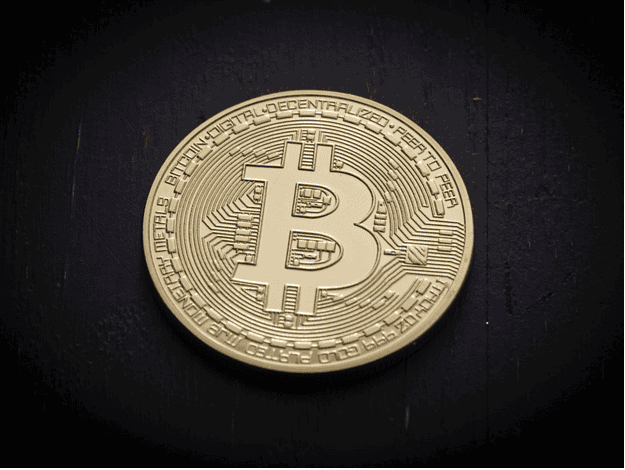Bitcoin, the first decentralized cryptocurrency, has won massive recognition and interest from individuals and institutional investors. While its capacity for excessive returns and technological innovation is appealing, Bitcoin funding also raises several ethical concerns.
These issues span environmental effects, economic inclusion, market speculation, regulatory compliance, wealth inequality, social obligation, and governance. This article explores those ethical dimensions and offers a comprehensive view of the moral panorama surrounding Bitcoin funding.
Go https://thequantumai.app for a deeper dive into the ethical dimensions of Bitcoin funding and how they intersect with environmental impact, economic inclusion, market speculation, regulatory compliance, wealth inequality, social responsibility, and governance.
Environmental Impact
One of the most significant moral issues associated with Bitcoin investment is its environmental footprint. Bitcoin mining, the system for validating transactions and securing the community, requires widespread computational electricity and, therefore, a lot of strength. Much of this power comes from non-renewable sources, contributing to carbon emissions and environmental degradation.
Research suggests that Bitcoin mining consumes greater strength annually than in a few small countries. This excessive electricity consumption raises moral questions about the sustainability of Bitcoin and its effect on climate change.
Investors should weigh the capacity economic benefits against the environmental costs and keep in mind assisting projects that promote sustainable and green mining practices.
Financial Inclusion
Bitcoin has been anticipated as a device for financial inclusion, imparting the right of entry to financial services for the unbanked and underbanked populations. However, the truth has been extra complex. The excessive volatility of Bitcoin’s rate, coupled with the technical know-how required to use it effectively, can create limitations for the ones it aims to assist.
Moreover, the value of access to the Bitcoin market can be prohibitively high for marginalized communities. As Bitcoin’s fee increases, the wealth generated tends to accumulate among those who already have access to the necessary resources and technology, doubtlessly exacerbating existing monetary inequalities. Ethical traders ought to keep in mind how their funding practices align with the goal of promoting broader financial inclusion.
Speculation and Volatility
Bitcoin’s marketplace is notoriously risky, pushed in by way of speculative trading. This volatility can cause massive monetary losses for individual buyers, especially those who are green or misinformed about the risks.
Speculative bubbles can inflate Bitcoin’s price far beyond its intrinsic worth, leading to marketplace crashes that may harm investors and undermine self-belief within the cryptocurrency market as a whole.
Ethically, buyers need to bear in mind the impact of their trading conduct on market balance and different participants. Promoting responsible investment practices and assisting instructional initiatives can help mitigate some of the bad outcomes of hypotheses and volatility.
Regulatory Compliance
Bitcoin operates in an exceedingly unregulated environment, which has advantages and downsides. On the one hand, it presents financial freedom and privacy; on the other hand, it opens the door to misuse for unlawful activities such as cash laundering, tax evasion, and financing terrorism. The anonymity and simplicity of transferring huge sums across borders without regulatory oversight pose tremendous ethical and criminal challenges.
Wealth Inequality
Bitcoin’s early adopters and massive-scale traders have gathered huge wealth, mainly due to a concentration of Bitcoin holdings. This concentration increases ethical questions about wealth inequality within the Bitcoin ecosystem. While early adopters took on sizeable risks, the contemporary distribution of wealth in Bitcoin displays broader societal inequalities.
Investors need to recall the implications of this wealth attention and explore approaches to assist tasks that promote a more equitable distribution of sources within the cryptocurrency network. This ought to consist of taking part in or donating to projects that concentrate on social and monetary inclusion.
Social Responsibility
Investing in Bitcoin carries a broader social responsibility. Investors need to not forget how their investments align with their personal and societal values. For example, does investing in Bitcoin assist innovation and economic freedom, or does it contribute to environmental harm and economic instability?
Ethical buyers might prioritize transparency, sustainability, and social effect when making investment choices. They can assist Bitcoin initiatives with the intention of dealing with these ethical worries, along with those focusing on renewable power for mining or developing economic tools for underserved communities.
Conclusion
The ethical issues of bitcoin investment are multifaceted and complex. While Bitcoin offers vast potential for financial returns and technological innovation, it additionally poses environmental, social, and regulatoryly demanding situations that traders should navigate thoughtfully.
By considering the environmental effect, selling financial inclusion, accomplishing accountable buying and selling practices, helping regulatory compliance, addressing wealth inequality, and advocating for obvious governance, buyers can align their Bitcoin investments with broader moral ideas. In doing so, they can make contributions to a more sustainable and equitable cryptocurrency ecosystem, balancing economic possibility with moral duty.







